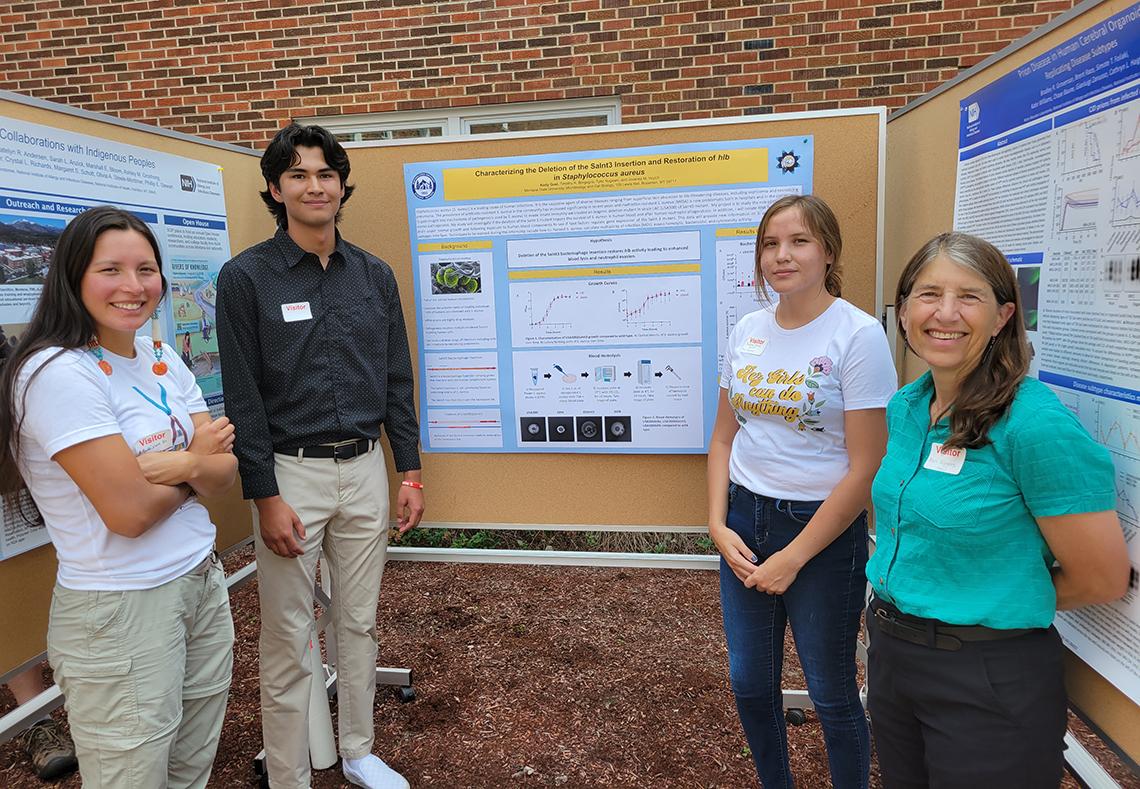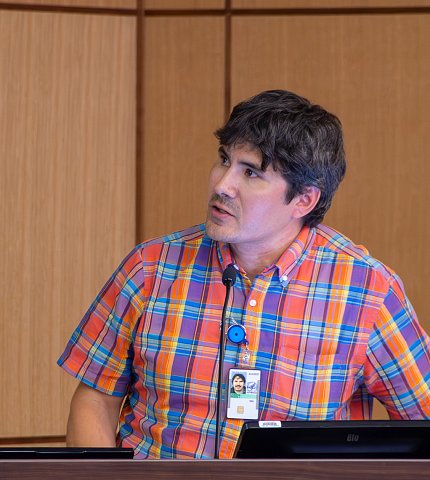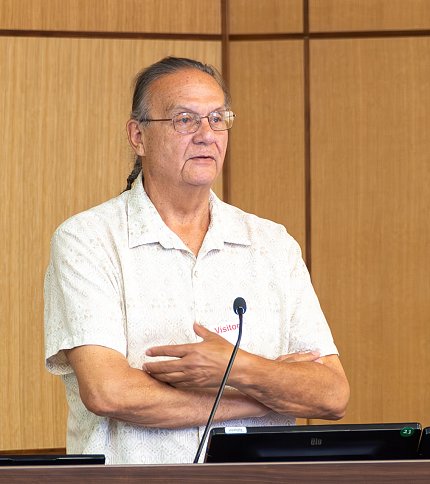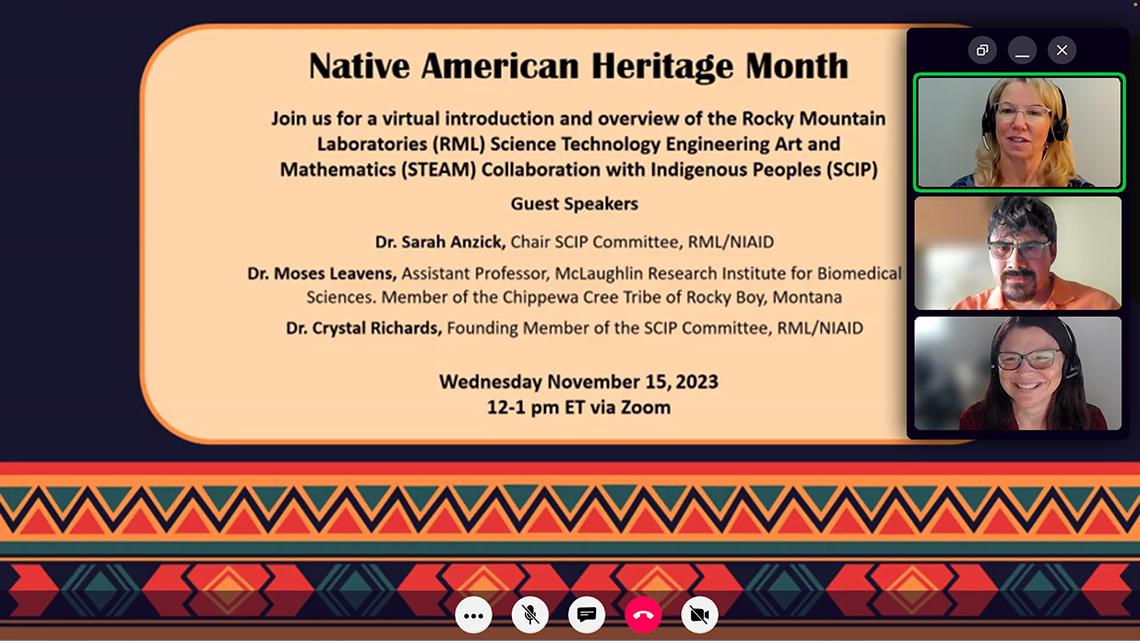‘Rivers of Knowledge’
American Indian Conference at RML Explores Research Potentia

A two-day conference, “Rivers of Knowledge,” was hosted by the science, technology, engineering, art and mathematics (STEAM) collaborations with Indigenous Peoples (SCIP) committee at Rocky Mountain Laboratories (RML), National Institute of Allergy and Infectious Diseases (NIAID). The event brought together more than 60 members of American Indian tribes, researchers and university colleagues to share information and spark research partnerships between Indigenous peoples and RML scientists.
Along with fostering new research alliances with American Indian and Alaska Native communities, the conference featured presentations designed to build research capacity at Tribal colleges, highlight training opportunities and promote novel approaches to STEAM educational curriculum development.

Faculty and students from Blackfeet Community College, Little Big Horn College on the Crow Nation and Confederated Salish Kootenai College interacted with RML researchers and committee members for seminars, poster sessions and breakout discussion groups.
Participants toured the campus, learning about the century-long evolution of RML from its beginnings in field tents and an old schoolhouse studying Rocky Mountain Spotted Fever to its current state with BSL-2 and -3 labs, state-of-the-art microscopy and sequencing facilities, and BSL-4 high-containment laboratories. In addition, NIAID Training Director Katie Soucy gave a presentation about the variety of RML training opportunities.
Former RML trainee Dr. Moses Leavens, a member of the Chippewa Cree Tribe of Rocky Boy, Mont., and an assistant professor at McLaughlin Research Institute, shared personal experiences about growing up outside of a reservation. He described his path to studying prion diseases at RML.

John Doyle, a member of the Crow Nation and water quality director at Little Big Horn College, spoke about the long struggle to provide clean water to the reservation.
Dr. Josh Marceau, who grew up on the Confederated Salish Kootenai or Flathead Indian reservation and now works at Fred Hutchison Cancer Research Center, was another former student who conducted research at RML. Marceau, whose younger brother also was a RML trainee, commented on the knowledge he gained at RML during a video interview recorded for the conference.
“Being able to understand how viruses are transmitted, how to contain viruses, how to avoid becoming infected by viruses, helped me navigate the global pandemic in a lot of ways,” he said. “I had a lot more experience to draw upon when I was giving advice to my friends and family, a lot of times still on the reservation.”
RML has research collaborations planned or underway with members of the Crow Nation.
For example, the Long and Groshong research groups are working with a multidisciplinary, collaborative team to study microbial pathogens in drinking and source water on the Apsáalooke/Crow Reservation in Montana.

Led by the Crow environmental health steering committee (Crow Agency, MT), research partners include those at Little Big Horn College, United States Geological Survey, NIAID Groshong Laboratory and Montana State University. All are working together to characterize pathogenic amoebae and bacteria in environmental and domestic water sources. The project is founded on community-based participatory research principles, with partnerships ranging from Tribal youth (Guardians of the Living Water Program) to Elders (Crow environmental health steering committee).
